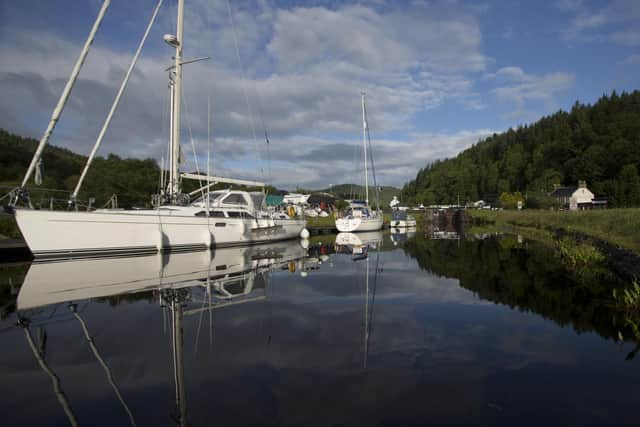Scotland's 'buoyant' marine tourism sector well-placed to increase contribution to economy
Specifically, sailing and boating are together estimated to generate £84 million in gross value added (GVA) and 3,100 full-time equivalent (FTE) jobs, many in rural and fragile coastal communities, the Economic Value of Boating Tourism in Scotland Survey 2022 has found.
Prepared by research specialist Ekos on behalf of a range of organisations including British Marine Scotland plus several local authorities, the in-depth study – which is undertaken about every six or seven years – is billed as providing “vital” evidence on how the boating/sailing tourism sector is performing in Scotland, and giving relevant parties a springboard to identify challenges and opportunities.
Advertisement
Hide AdAdvertisement
Hide AdHighlighted findings include the sector having shown “resilience”, and since the last survey in 2016 having experienced real-term growth in GVA of 8 per cent – “despite unprecedented challenges” – compared to the Scottish economy having shrunk by 1.1 per cent.


In terms of growth projections, based on 17 pipeline development projects that would enhance the overall berthing capacity in Scotland by 1,280 (an increase of 8 per cent), it is predicted that GVA could increase to £90m to £92m per year, and support 3,250 to 3,340 FTE jobs.
Berthing capacity has increased by 1,100 since 2016 to now total 16,800, while there is a “strong” pipeline across Scotland of planned development activity – increasing capacity by about 1,300 by 2030, the report added.
However, feedback identified that while the overall offer in Scotland was felt to be good in comparison to other destinations (particularly in mainland Europe and Scandinavia), customer service, the age/quality of shoreside and onshore infrastructure and range of facilities, such as nearby accommodation/restaurants were seen as “inconsistent”. The study also identified how access to funding will be important to help ensure a “consistent and good quality” service offering.
Opportunities were also identified for growth and development within the staycation market, integrating a mixed sport and activity offering, and enhancing the green credentials of the sector.
Promising
Lesley Robinson, chief executive of British Marine, said: “This report demonstrates some very positive and promising statistics for the leisure boating sector in Scotland. It shows that despite the challenges we all faced through the pandemic, the sector has remained buoyant and appears to be flourishing.
“With continued investment from the forthcoming Growth Deals and Levelling Up Funds, we would expect to see continued growth and development of the marine sector and contributions into stronger communities in Scotland.” Martin Latimer, joint chairman of British Marine Scotland said it will continue to work with partners to strengthen the sector.
James Stuart, strategic lead for giant strides, the Scottish Marine Tourism Strategy, said: “This study underlines how significant the contribution of marine tourism is to Scotland… Importantly, the growth contributes to much more than the economy, driving benefits to communities and the environment. The report also highlights key areas of focus for the coming years, taking the fantastic examples of sport-first, community-first and region-first development and sharing them round the rest of Scotland.”
Also behind the report are the South of Scotland Enterprise Agency, Crown Estate Scotland, the Royal Yachting Association Scotland, and Scottish Canals.
Comments
Want to join the conversation? Please or to comment on this article.